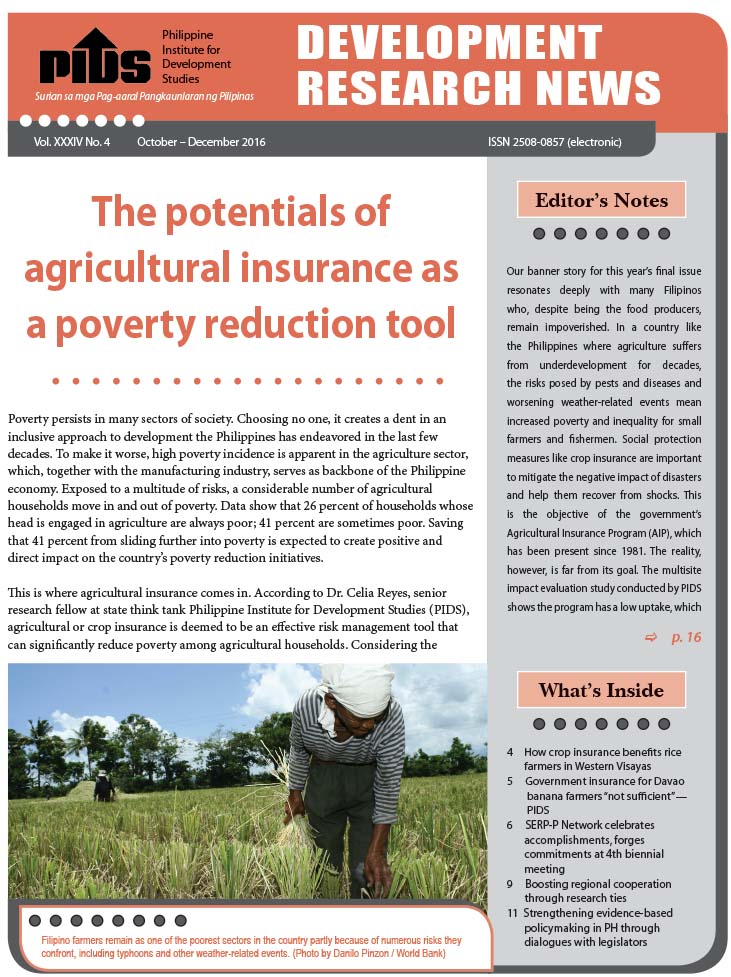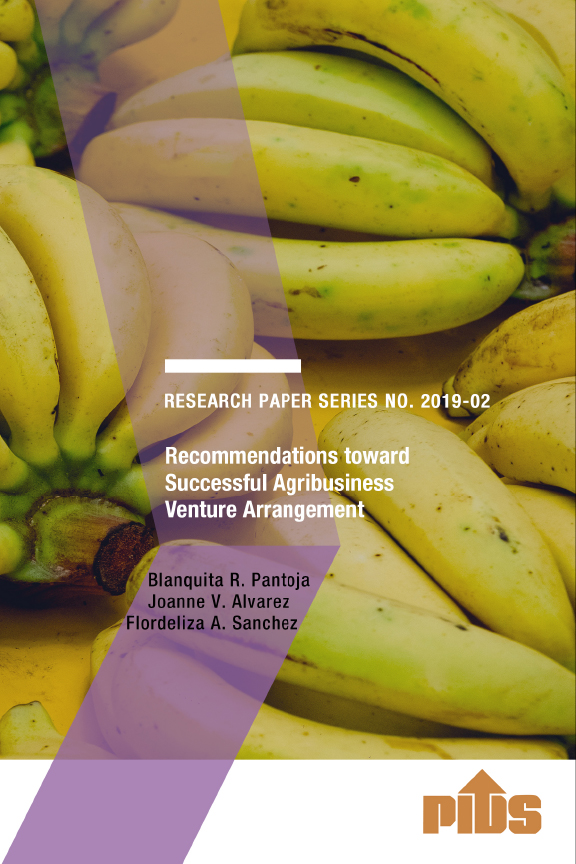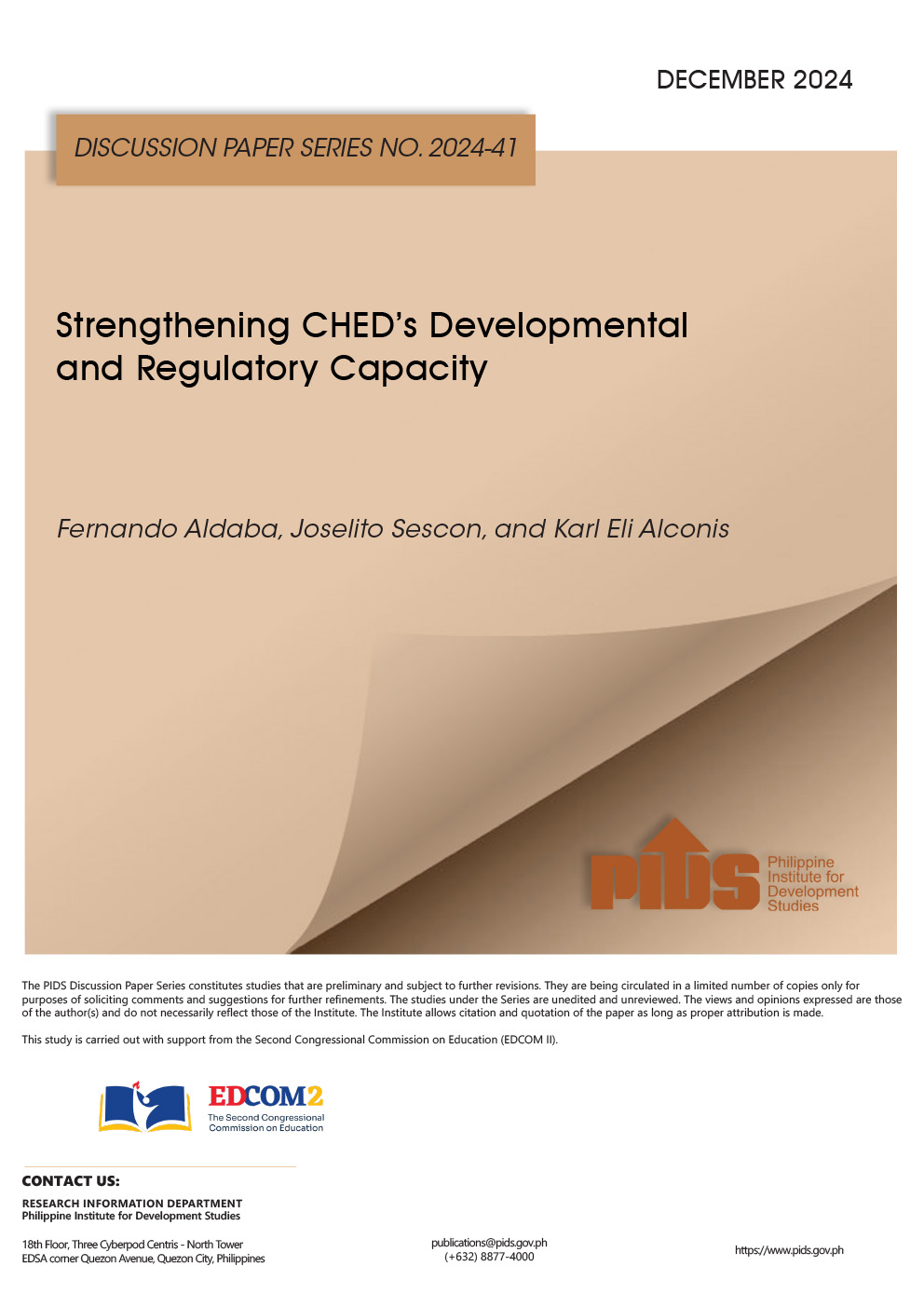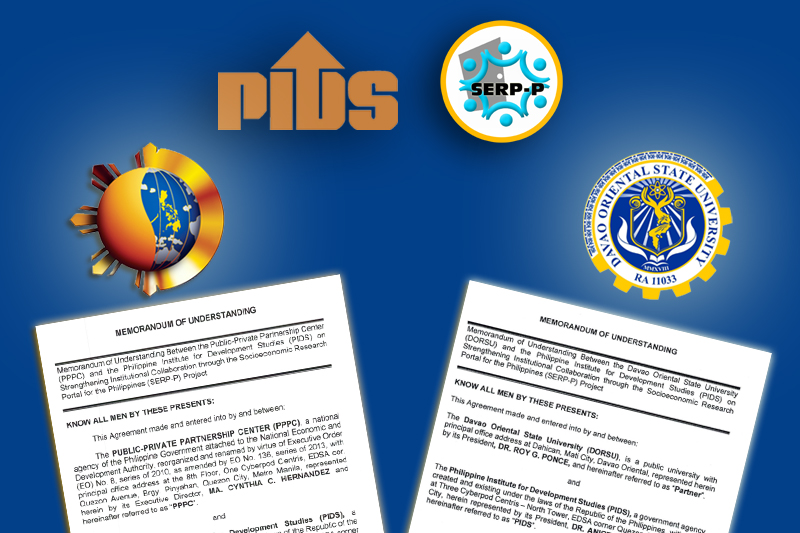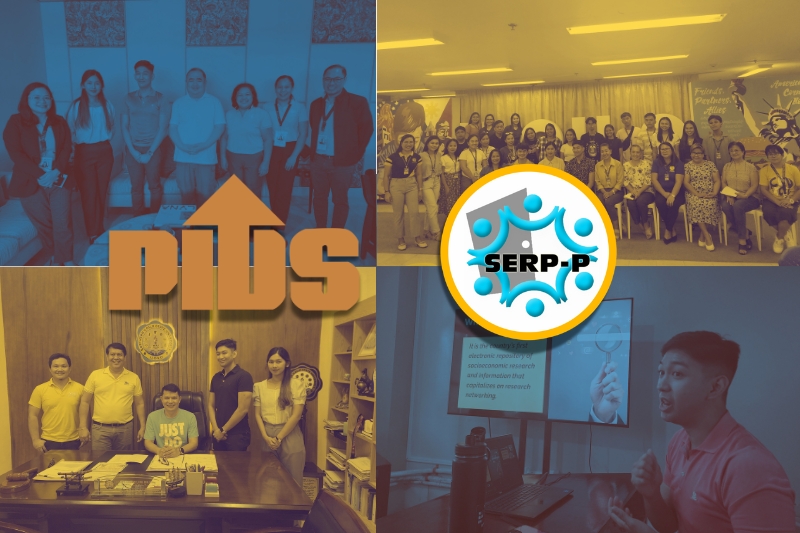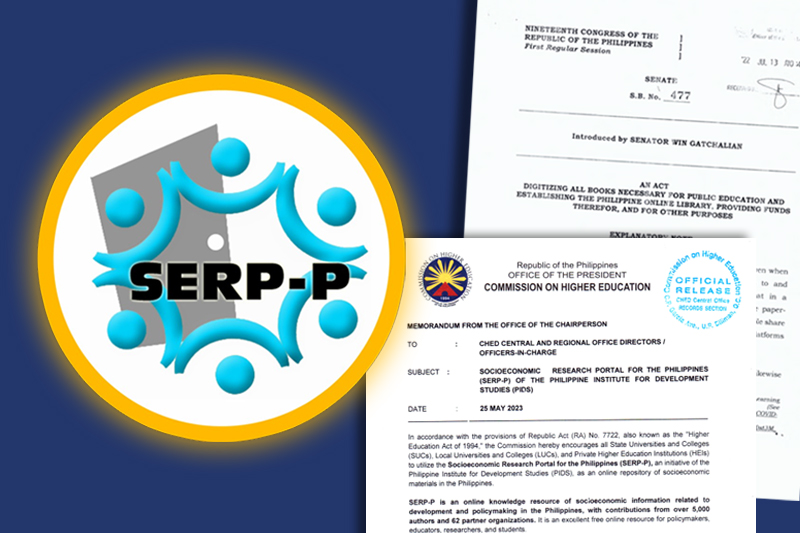
The Socioeconomic Research Portal for the Philippines (SERP-P), a project led by the Philippine Institute for Development Studies (PIDS), was recently endorsed by the Commission on Higher Education and praised by Senator Sherwin Gatchalian as a “successful government-operated e-library”.
SERP-P (serp-p.pids.gov.ph) is the Philippines’ first and free electronic repository of socioeconomic materials produced by PIDS, other government agencies, research and academic institutions, and international organizations based in the Philippines. Created for students, educators, and policymakers, it aims to provide the public with easy and immediate access to socioeconomic information from its network of more than 60 partner-institutions.
The Commission on Higher Education (CHED) recently endorsed SERP-P as a knowledge resource to its regional offices, state universities and colleges, local universities and colleges, and private higher education institutions in a memorandum circular. The endorsement solidified SERP-P's position as a vital resource of socioeconomic materials in the country.
Moreover, SERP-P was cited as a “successful government-operated e-library” in Senate Bill 477 or the proposed “Philippine Online Library Act” by Senator Sherwin Gatchalian, chairperson of the Senate Committee on Basic Education.
Gatchalian highlighted the importance of pandemic-proof or “ubiquitous and accessible” educational resources, especially free digital education tools like the SERP-P, which ensures continuity in learning during times of disruption. He named SERP-P as an example of a successful government-operated e-library.
“…One example of a successful government-operated e-library is the SERP-P, designed and maintained by PIDS. SERP-P is an online knowledge resource that contains socioeconomic studies and materials produced by the PIDS and other academic and research institutions in the country. For the first half of 2022 alone, SERP-P already had 11,843 users with 35,219 page views,” he said in the bill.
Since 2000, SERP-P has played a crucial role in linking government policymakers and research institutions while establishing an extensive repository of socioeconomic research in the Philippines.
For more information, visit serp-p.pids.gov.ph or contact serpp@pids.gov.ph.###

